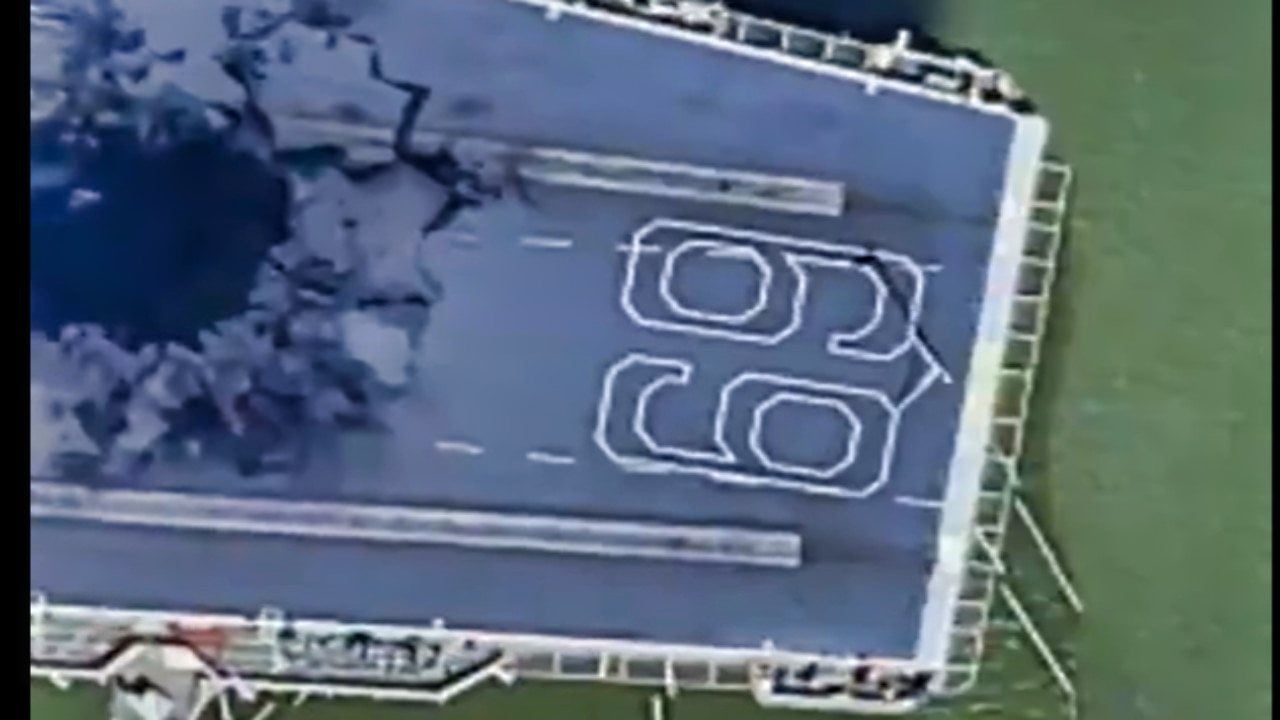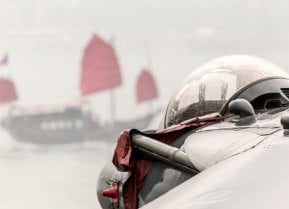Did Houthis Strike a U.S. Aircraft Carrier?
Houthi rebels recently claimed to have struck the USS Dwight D. Eisenhower in the Red Sea using unmanned aerial vehicles, a claim denied by U.S. Central Command. It seems clear the claims are totally false.
Summary and Key Points: Houthi rebels recently claimed to have struck the USS Dwight D. Eisenhower in the Red Sea using unmanned aerial vehicles, a claim denied by U.S. Central Command.

-The incident is part of a broader disinformation campaign by the Iran-backed group, which has been targeting international shipping in retaliation for U.S. and UK military actions against them.
-Supported by Iran, the Houthis have increased their attacks in strategic waterways, posing significant risks to global trade and regional stability.
-Despite the claims, there is no evidence that the USS Eisenhower or any U.S. vessel was hit.
Houthi Rebels' False Claims: No Hit on USS Dwight D. Eisenhower
Houthi rebels claimed they achieved a “direct hit” on a U.S. aircraft carrier in the Red Sea over the weekend.
A spokesman for the Iran-backed militant group said Houthi forces targeted USS Dwight D. Eisenhower with unmanned aerial vehicles on Saturday in retaliation for Israel’s ongoing military operation against Hamas in Gaza.
Chinese and Iranian state-run media outlets circulated the rumor, publishing a clearly doctored photograph of the American ship on social media (we have compiled several example photos in this article). However, U.S. Central Command denies the claim. According to Voice of America, a CENTCOM official asserted that, “There is no truth to the Houthi claim of striking the USS Eisenhower or any U.S. Navy vessel,” adding that “This is an ongoing disinformation campaign that the Houthis have been conducting for months.”
The Houthis Continue to Barrage Ships in the Red Sea
Over the last few months, the U.S. and the United Kingdom have been carrying out frequent barrages against Houthi assets in the Middle East in an effort to further degrade the group’s capabilities.
The Iran-backed militants continue to cause headaches in the Gulf of Oman and Red Sea, attacking international shipping routes frequently. Since the October 7 Hamas massacre in Israel, the Houthis have partnered with regional affiliates to strike vessels they claim are linked to the Jewish state and the West. From October to March alone, the Houthis carried out at least 60 attacks in the Red Sea and Gulf of Aden.
How Iran Is Fueling the Conflict
In a direct response to these unwarranted barrages, UK and U.S. forces target Houthi assets and weapons depots in Yemen. The Houthis have embroiled Yemen in civil war since 2014 after they seized control of the country’s northern Sana’a province and forced out the government. The conflict evolved into a larger and quite lethal war.
Just as the Islamic Republic supports Gaza-based Hamas terrorists via weapons transfers, funding, training and propaganda, so it also backs the Houthis in Yemen. Tehran is proficient in exploiting regional instability to exert control. As detailed by War on the Rocks, “They assemble these parts into working weapons with technical assistance from Hezbollah and Islamic Revolutionary Guard Corps advisers. This approach has allowed the Houthis to now field short and long-range drones and an increasingly diversified fleet of missiles capable of striking deep inside Saudi Arabia.”

The Houthis’ increased barrages targeting ships in the Gulf of Oman are a dangerous escalation, according to U.S. officials. Approximately one-fifth of the world’s crude oil traded by sea passes through the Strait of Hormuz. The Iran-backed group knows it can interrupt the flow of the global economy using lethal UAVs, missiles, rockets and other projectiles. The rebels may claim to only target ships linked to Israel, but the Pentagon has refuted this claim and provided evidence indicating the group also targets multinational ships. As explained by a Department of Defense spokesperson, “The Houthis continue to endanger commercial shipping that goes through that region, continue to put at risk U.S. forces, other countries’ forces in the region who want to see commerce continue to flow in a very crucial area in the Middle East.”
Although Houthi military spokesperson Yahya Saree claims that the Eisenhower was damaged in recent barrages, this narrative is clearly pure fiction. However, the militant group is well supplied with UAVs thanks to Iran, and eliminating the Houthis’ weapons depots should remain a top priority for U.S. and Israeli forces alike.
About the Author: Maya Carlin
Maya Carlin, National Security Writer with The National Interest, is an analyst with the Center for Security Policy and a former Anna Sobol Levy Fellow at IDC Herzliya in Israel. She has by-lines in many publications, including The National Interest, Jerusalem Post, and Times of Israel. You can follow her on Twitter: @MayaCarlin.
Images of fake aircraft carrier attack via social media screenshots.


